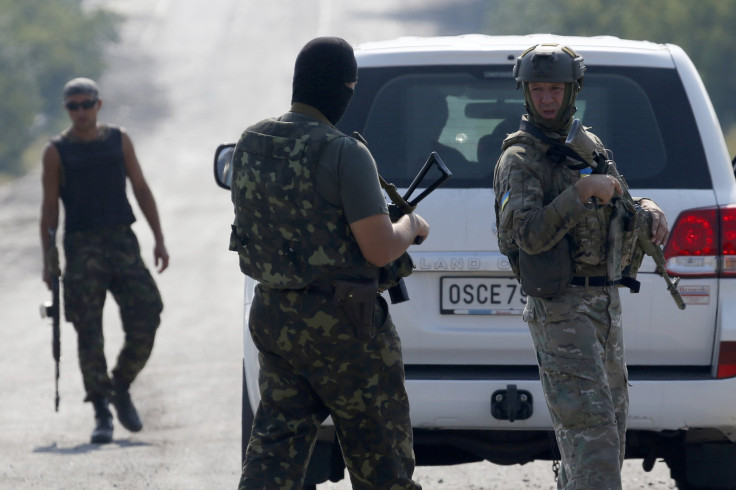Russia, Ukraine Agree On Draft Schedule Of Disengagement Of Forces In Donbas

The Russian and Ukrainian heads of the Joint Centre for Control and Co-ordination, or JCCC, have agreed on draft schedule for gradual disengagement of forces along the line of contact in Donbas, in the southeastern region of Ukraine, according to a Special Monitoring Mission report by the Organization for Security and Co-operation in Europe, or OSCE.
“The SMM met the Ukrainian and Russian heads of the JCCC, who said that the two of them had agreed a draft schedule for gradual disengagement,” the OSCE report said. “Earlier that day they had started to discuss the plan with members of the Donetsk People's Republic (DPR).”
The draft document, signed by the members of both the countries, proposed the disengagement of forces in three phases -- a ceasefire for two days, withdrawal of heavy weapons for five days and disengagement of forces to the line of contact referred to in the Minsk Memorandum for 21 days.
The Minsk Memorandum was signed by representatives of Ukraine, Russia, the Donetsk People's Republic and the Lugansk People's Republic on Sept. 5 in Minsk to halt the war in the Donbas. However, the agreement failed to stop fighting in the region.
The conflict in Ukraine intensified in April, after Kiev launched a military operation against pro-Russian rebels in the country's southeastern regions. When the crisis escalated, the Ukrainian government requested the services of the Special Monitoring Mission, which currently monitors the implementation of the ceasefire agreements in the country, Sputnik reported.
Last week, Kiev's military claimed that a column of 32 tanks, 16 howitzer artillery systems and trucks carrying ammunition and fighters had crossed into eastern Ukraine from Russia.
However, the Pentagon said in a subsequent statement that there was no evidence to confirm the alleged Russian military incursion into Ukraine.
Since the conflict in eastern Ukraine began in April, Kiev and the West have accused Russia of interfering in the crisis. Moscow has also been criticized for allegedly sending troops and weapons to pro-Russian rebels in the Donetsk and Luhansk regions.
© Copyright IBTimes 2024. All rights reserved.












